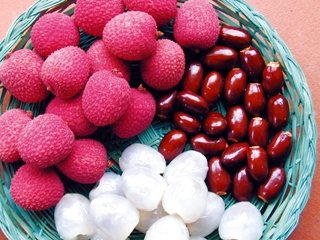
PAKISTAN HAS fertile and variety of soils. It has variation in its soil and climatic conditions, which is favorable for the production of fruits, vegetables, and other agronomic crops. Mostly, high valued fruits and vegetables are produced in our country. Pakistan ranges from tropical-to-temperate climates allow growing 40 different kinds of vegetables and 21 types of fruits.
The present area under fruits and vegetables is 0.995 million ha (4.3 per cent of the total cropped area) with the total production of 10.992 million tons. Both area and production have increased in the past but at a slow pace. Pakistan is a fascinating country in its fruit wealth where almost all fruits consumable for humans are grown. Fruits are low in calories, fat and are a source of simple sugars, fiber, and vitamins, which are essential for optimizing human health. Minors fruits provide plenty of soluble dietary fiber, which helps to ward off cholesterol and fats from the body and to help in smooth bowel movements as well as offer relief from constipation ailments.
Minor fruits are comprised of many anti-oxidants such as poly-phenolic flavonoids, vitamin-C and anthocyanins. These compounds help human body to shield oxidant stress, diseases, and cancers. Anthocyanins are flavonoid category of poly-phenolic compounds found in some minor fruits like “fig, ber, phalsa, papaya, jamun, guava, fig, pomegranate, mulberry, pear, cherry, avocado, loquat, litchi, olive, strawberry and mulberries, Minor fruits health benefiting properties are because of their richness in vitamins, minerals, micro-nutrients, pigment anti-oxidants. Many of them are equipped with qualitative and nutritive traits and high medicinal properties. Management concerns of these minor fruit crops and their wild relatives are discussed with some of the major threats being the cultivation of commercial, high yielding varieties and increased population pressure.
The rolling of ages, the necessity of food however got dominance due to increasing population for which fruits having greater suitability for use as food had been emphasized than those having other traits. The trend got impetus for land competition due to farming of other crops, reared animals and human settlement, eventuating the fruits having lesser importance as food to grow as wild.
Minor fruit crops have great medical values, which are required to be introduced in the Value addition in minor fruits (like ber, phalsa, papaya, jamun, guava, fig, pomegranate, mulberry, pear, cherry, avocado, loquat, litchi, olive, strawberry etc.) is expected to impact positively not only on income generation of farmers and entrepreneurs but also on ensuring nutritional and food security of country. There are more than 90 processing plants for citrus, 28 for mango and two for date processing in country but situation is worst with all other minor fruit crops. Incentives to encourage processing of minor fruits and their exports are lacking.
The existing fruit processing industry is concentrated around Karachi, Lahore and Peshawar. They produce jams, jellies, squashes, pickles and canned fruits. The production of fruit-preserve is currently estimated at 15,000 tons out of which jams, jellies and marmalades are 2,000 tons; pickles and chutneys 10.000 tons and syrups and squashes 18 million bottles and it can be increased two folds by evaluating minor fruits. They could open more markets for both top and bottom of value added minor fruit products.
Pakistan produces a huge amount of guava but export is negligible, same situation is with Indian plum (Ber), jambol (Jamun) and strawberry. Most of the fruit wastes and growers gain nothing, Ber varieties for jam and juice purpose. No regular orchard of minor fruits exists in country. Trees of jamun, ber and litchi are still used for avenue plantation, thats why income is very low. An extremely small area of minor fruits is under cultivation and there is no industry to process existing product. For example, Ber produces in surplus and goes wasted due to non-processing facilities although UAE and China is big market to export in both fresh and processed form. In such situations, there is a need to convince farmers to focus on plantation of these neglected fruits.
Improvement and promotion of nurseries at district level of these ignored, fruits standardize production technologies and persuasion of industrialists to focus this ignored aspect is required at this stage. Unfortunately, currently the annual production of minor fruit in Pakistan is not sufficient to meet the export potential due to insufficient cultivation.
There is dire need to increase the area of cultivation for high yield. This turn will lead to boost the export potential as well as the availability of value added products on long term basis, which will ensure welfare and increase economic development in country. Horticulture In the recent scenario, future of minor fruits cultivation, processing and export is very bright in Pakistan. It should be highly recommendation for farmers to grow and promote these minors fruit in all of the Pakistan.